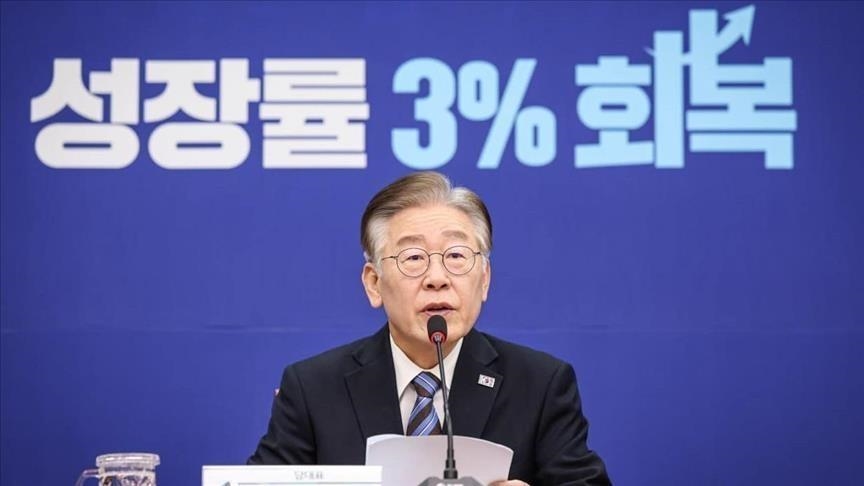AI takes center stage in S. Korean presidential race amid deepfake concerns
South Korea will become 'one of the top three AI powerhouses,' pledges presidential candidate Lee Jae-myun
 Credit: @jaemyunglee, Facebook
Credit: @jaemyunglee, Facebook
ISTANBUL
Artificial Intelligence (AI) has taken center stage in the upcoming snap presidential elections in South Korea along with rising concerns over the misuse of deepfake technology as students refuse to take graduation photos.
Presidential frontrunner and former Democratic Party leader Lee Jae-myung has pledged to invest 100 trillion won (about $70 billion) in AI if elected. The vote is scheduled for June 3, following the ousting of former President Yoon Suk Yeol over his attempt to impose martial law.
Lee, in his first campaign pledge since announcing his candidacy last Thursday, said South Korea will become “one of the top three AI powerhouses.”
“The government will act as a primer for private investment and increase AI-related budgets to levels exceeding those of advanced economies,” he said, adding that AI was "no longer optional, but essential.”
Lee’s campaign promises include developing a South Korean version of ChatGPT and securing at least 50,000 GPUs to support AI growth.
However, as the country pushes forward with AI advancement, it also faces growing concerns about digital privacy and the misuse of deepfake technology.
According to Korea JoongAng Daily, several schools are opting not to print traditional yearbooks due to fears that student photos could be manipulated using AI-generated deepfake images.
Deepfake-related crimes more than tripled in 2024, rising to 1,384 cases from 423 the previous year, according to the Ministry of Gender Equality and Family, with teenagers comprising nearly half of the victims at 46.3%.
“Many teachers, parents and even students did not want their photos taken due to concerns about digital crimes and personal information leaks,” a school official said. “This will likely be the first year we won't publish a yearbook since the school was established in the 1960s.”
The report noted: "The shift is being driven by growing fears that student and staff photos could be abused through digital manipulation, particularly deepfake editing."
Anadolu Agency website contains only a portion of the news stories offered to subscribers in the AA News Broadcasting System (HAS), and in summarized form. Please contact us for subscription options.







